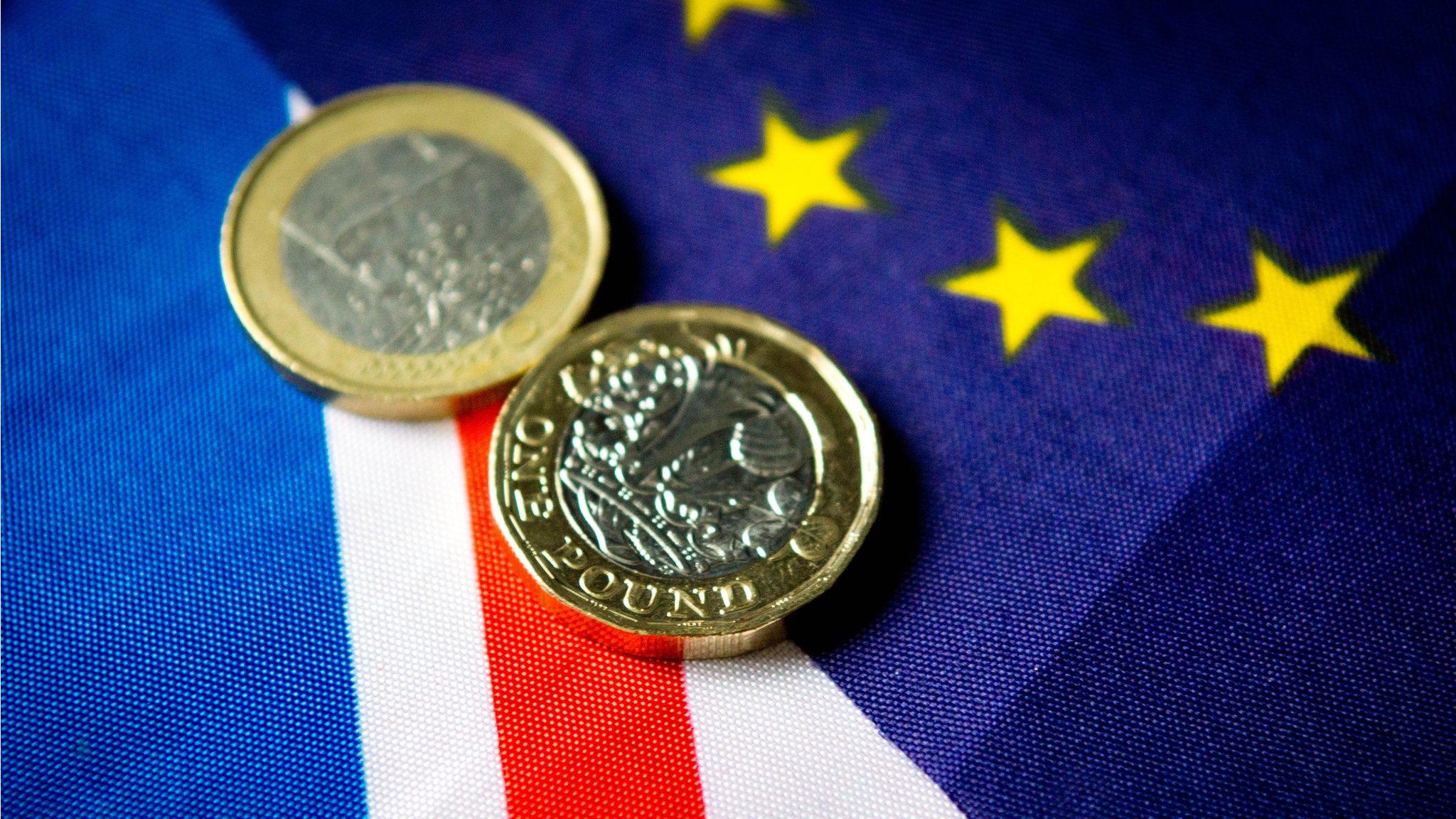Don't play Santa to the EU, Tory MP warns government
- Published
- comments
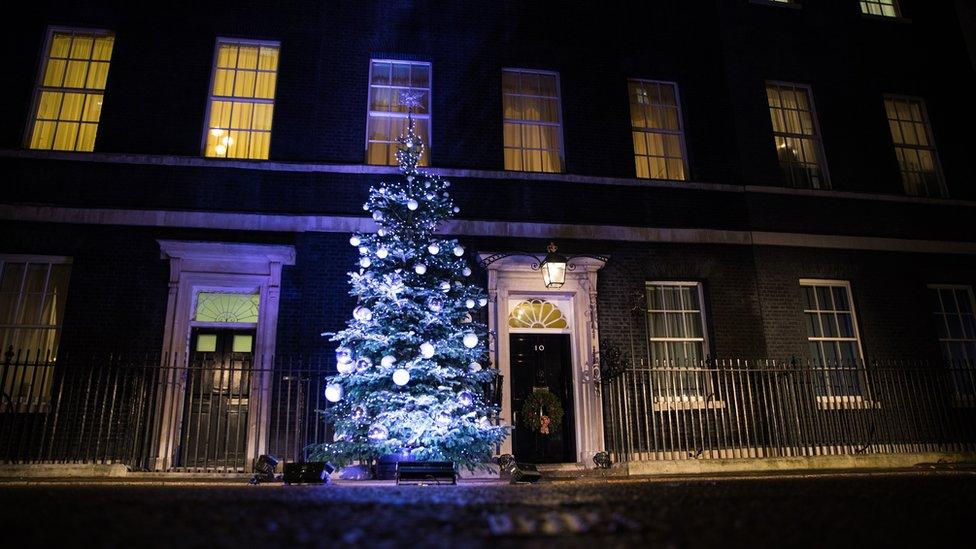
'Don't play Santa to the EU', a Tory MP is warning the government
The UK government cannot afford to "play Santa Claus" to EU bosses by handing over billions of pounds, a Conservative MP says.
Nigel Evans accused the EU of demanding "ransom money" from Theresa May to move Brexit negotiations forwards.
He was speaking ahead of a meeting between Mrs May and senior ministers to try to make progress on the stalled talks.
Downing Street has dismissed reports the UK could double its £20bn offer.
After the meeting, a Downing Street source said: "It remains our position that nothing's agreed until everything's agreed in negotiations with the EU.
"As the prime minister said this morning, the UK and the EU should step forward together."
This "divorce bill" is one of the main reasons for the logjam in negotiations between the UK and the EU.
One ex-minister warned voters would "go bananas" if £40bn was offered, while Mr Evans told the BBC only cash the UK is "absolutely contracted for" should be handed over.
"Yes we will have obligations, but we're not going to pay ransom money simply to leave the European Union," he said, adding that the money saved by leaving the EU should be "spent on British nurses not on Brussels bureaucrats".
Why does the UK owe anything?
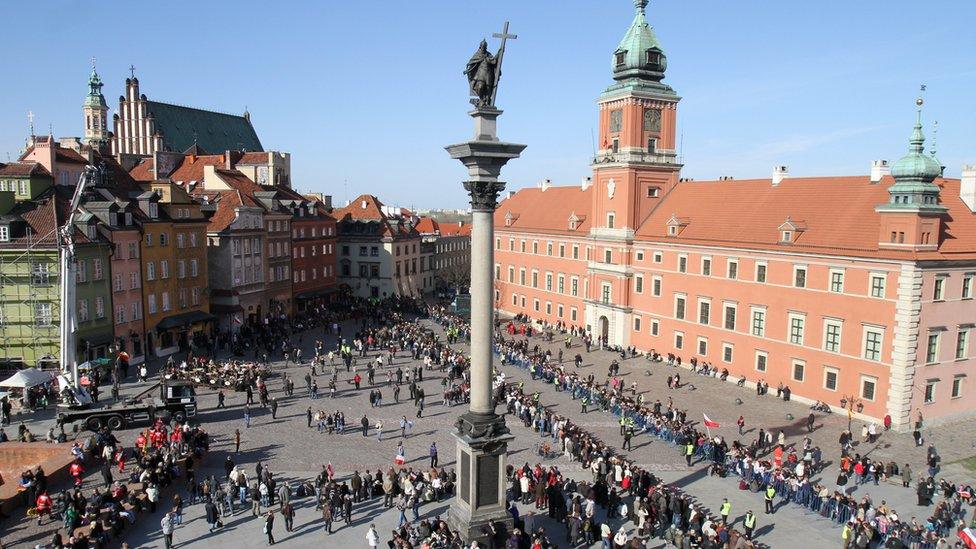
Poland is one of the largest recipients of EU development funding
The EU says the UK needs to settle its accounts before it leaves. It says the UK has made financial commitments that have to be settled as part of an overall withdrawal agreement.
The UK accepts that it has some obligations. And it has promised not to leave any other country out of pocket in the current EU budget period from 2014-20.
But the devil is in the detail.
There are also issues like pensions for EU staff, and how the UK's contribution to these is calculated for years to come, and the question of what happens to building projects - for instance in Spain - that had funding agreed by all EU members including the UK but which will only begin construction after the UK has left.
Large amounts of the EU's budget are spent in two areas - agriculture and fisheries, and development of poorer areas.
Projects include business start-ups, roads and railways, education and health programmes and many others.
Talks have stalled so far
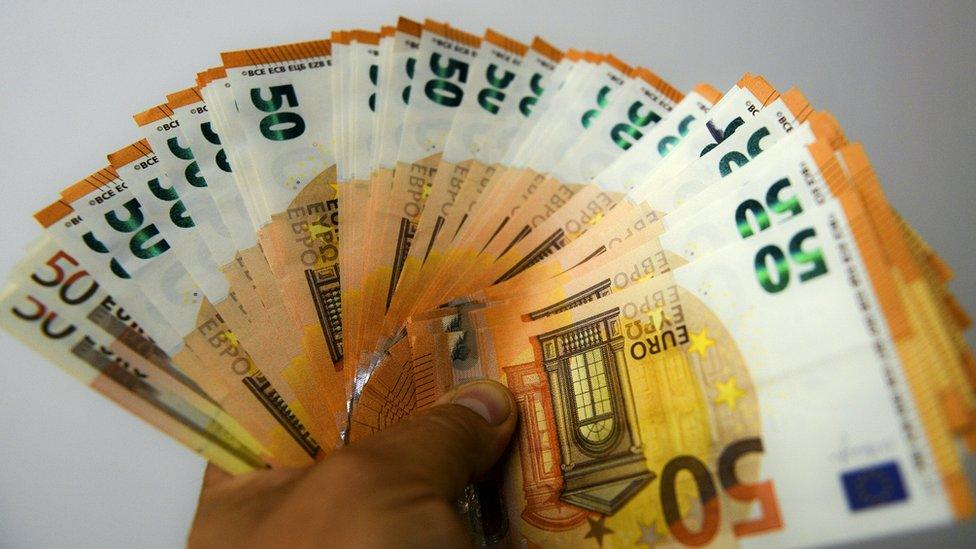
The EU says it will not discuss a new trade deal with the UK until issues like the "divorce bill" have been settled, and has given Mrs May a deadline of early December to increase the UK's offer.
The issue of the Irish border and what happens to EU and UK citizens living in each other's countries also needs to be settled.
Speaking on BBC Breakfast, Business Secretary Greg Clark said the amount the UK was prepared to offer should only be discussed in private because the UK had to "exercise discipline" in the negotiations.
On Sunday Chancellor Philip Hammond said the UK would come up with proposals in time for the crunch summit in mid-December, where the EU will decide whether to move the negotiations on to talking about future issues like trade.
He promised Britain would honour its debts but also "negotiate hard" on the various aspects of the financial settlement.
BBC political editor Laura Kuenssberg's take
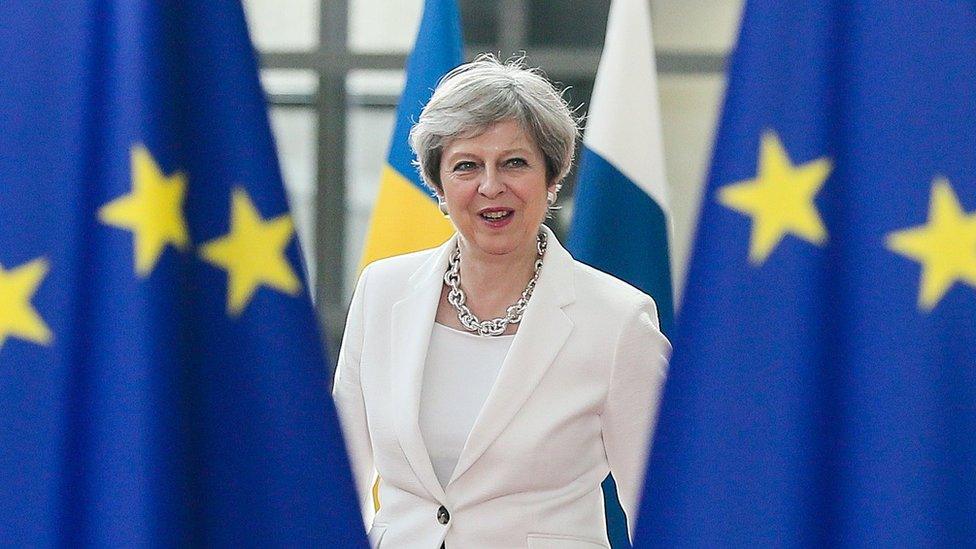
Theresa May is to meet some of her senior ministers to discuss the logjam in the Brexit talks
Several government sources say the meeting of the Brexit strategy group today could change the course of our departure.
The question to be answered could be profound.
One source told me: "People have to decide if they really want to make progress and support this prime minister, or not."
For some in government that tight group of cabinet ministers must take a decision as vital as that - do they want to do a deal with the EU, or not?
Of course there is bravado on both sides.
As ever, whether thinking of talks on the continent, or in government, take every utterance with a pinch of salt.
How did we get here?
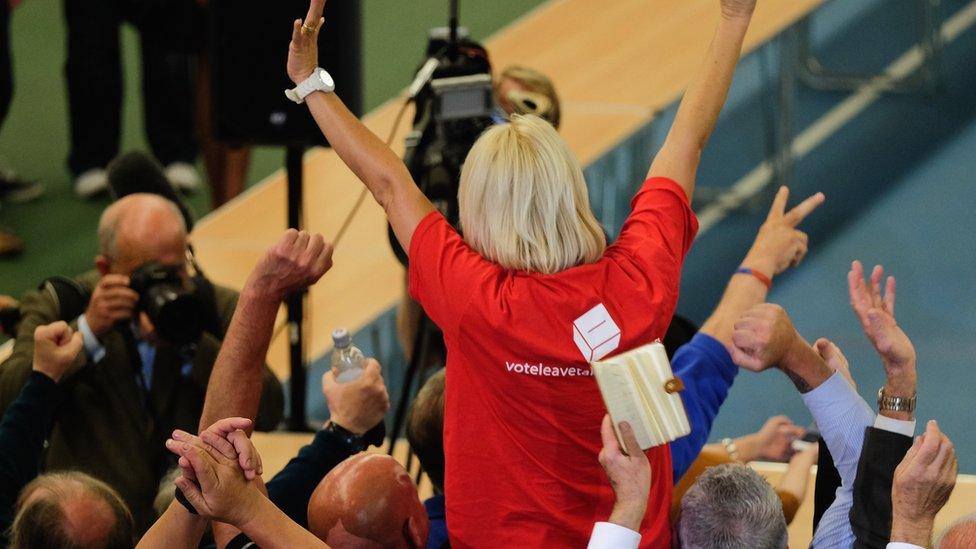
Flashback to 24 June 2016 as Leave campaigners celebrated the Brexit result
The UK voted to leave the EU in June 2016, and served the EU with formal notice of Brexit in March 2017. This began a two-year countdown to the UK's departure day which will be in March 2019.
Before that the two sides have to agree all sorts of things - including what happens to people living in different countries, how the UK will trade with the EU in future and how the borders will be managed.
So the two teams of negotiators have been meeting in Brussels every month.
But there has not been much of a breakthrough so far, with the "divorce bill" proving to be one of the key sticking points.
Part of the problem for Theresa May is that while the EU wants the UK to offer more money, some of her MPs say this would be unacceptable and that the UK should just walk away and leave.
What the papers are saying
There are plenty of reports about what might happen in today's meeting in Monday's newspapers (although Downing Street has said it is just speculation).
According to the Daily Telegraph, external, Brexiteers in the cabinet are expected to "demand that Mrs May sets out exactly what Britain expects to get for its money before a penny more is promised".
The Mail, external rejects any offer to pay a significantly larger divorce bill in the Brexit negotiations than what it calls the generous sum already pledged by Prime Minister Theresa May.
It's not as if the EU has made a single concession to justify an improved offer, it declares.
The paper resents the EU's insistence on the UK coming up with more money before trade talks can start and asks: "Why should we surrender to blackmail?"
But the Times accepts that, external Britain will have to pay more money - and says it would come with the expectation that the EU, in return, would place a meaningful trade deal on the table.
Going bananas?

Speaking on BBC Radio 4's Westminster Hour, former minister Robert Halfon said people would not accept a "huge" sum not being spent on schools and hospitals.
The Tory MP said that with austerity on the agenda ahead of Wednesday's Budget, "if we start saying that we're going to give £40 to £50bn to the EU, I think the public will go bananas, absolutely spare".
Mr Halfon said he had backed Remain in the EU referendum, but added "we voted to leave, the public want to leave, and I cannot believe that the public would accept such a huge amount when we need money for our schools, our hospitals, our housing, and many other things".
On Sunday Chancellor Philip Hammond said the UK would honour its debts but also "negotiate hard" on the various aspects of the financial settlement.
The view from Brussels
The EU's chief negotiator, Michel Barnier, has been speaking today, saying he wanted the UK to "settle the accounts accurately" before beginning trade talks.
The UK is currently in the EU's single market, which allows companies to sell goods across borders without fees being charged. After Brexit it wants to draw up a new free trade deal in its place.
Mr Barnier said the UK would lose the benefits of the single market as a result of its desire for new controls over EU migration.
In his speech, he attacked what he described as "ardent Brexiteers" for thinking Britain can be freed from EU rules and still participate in the single market.
And finally... here's what the BBC's Norman Smith makes of it
Loadsamoney? Norman Smith on the Brexit divorce bill
- Published17 November 2017
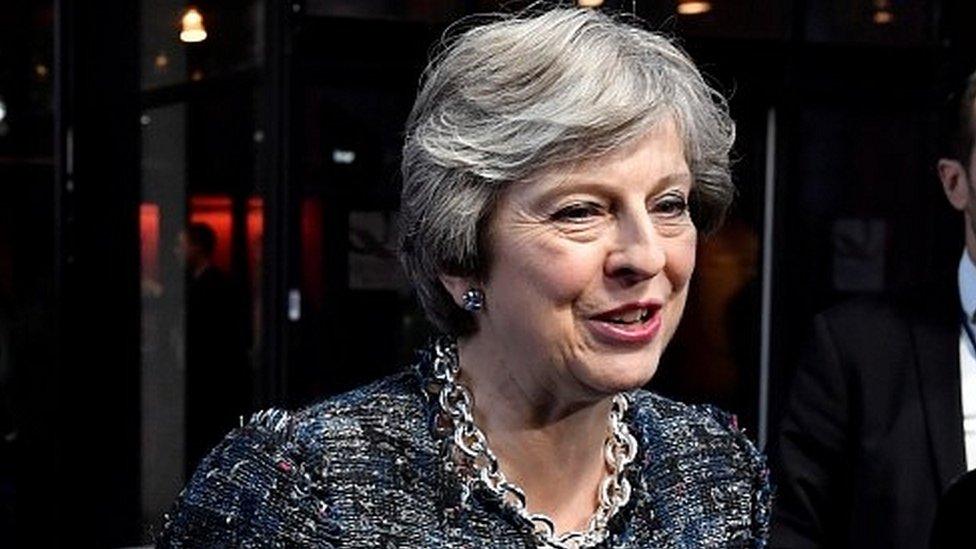
- Published17 November 2017
